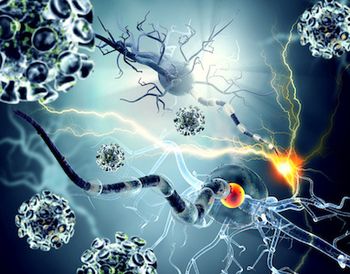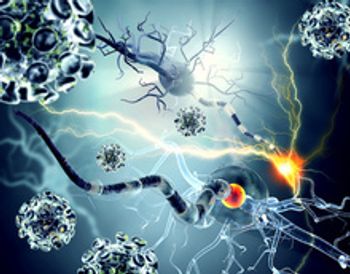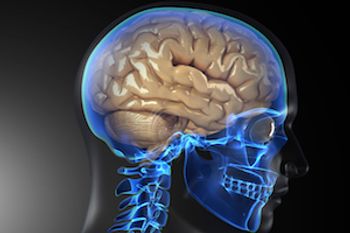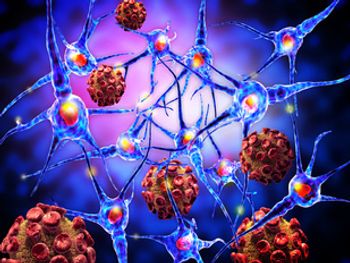
Multiple Sclerosis
Latest News
Latest Videos

CME Content
More News

A recent study sought to determine the impact of flavonoids on fatigue in relapsing and remitting multiple sclerosis (RRMS).

Pediatric multiple sclerosis (MS) represents a small minority of MS diagnoses. WIth symptoms that differ from adults, children with MS often experience delays before they are diagnosed.

Interventions to prevent job loss for patients with multiple sclerosis (MS) should focus on increasing self-efficacy, especially for patients older than 50 years.

A tool at Brigham and Women’s Hospital allows clinicians to view profiles of patients with multiple sclerosis (MS) as a snapshot to better understand their overall disease course, said Tanuja Chitnis, MD, associate neurologist at Brigham and Women’s Hospital and professor of neurology at Harvard Medical School.

According to recently published research, vitamins B12 and B9 can lower levels of homocysteine, improve anemia status, and boost physical health in patients with relapsing remitting multiple sclerosis (MS).

Nearly 10% of drug approvals in 2018 were generic products for branded drugs that had no FDA-approved generics.

A new study determines the smallest change in upper extremity function that patients with multiple sclerosis (MS) find important or meaningful through an analysis in the change of scores of the Arm Functiom in Multiple Sclerosis Questionnaire.

Due to continued uncertainty around how aggressively to treat early multiple sclerosis (MS), a group of researchers recently analyzed long-term outcomes in a population-based cohort according to initial treatment strategy.

Research comparing outcomes, resource utilization, and costs of multiple sclerosis (MS) found that patients with the disease face substantial burdens that differ among Japan, 5 European Union countries, and the United States.

Polypharmacy (patients taking ≥5 medications) is not uncommon in patients with relapsing-remitting multiple sclerosis and it is associated with higher levels of disability and the presence of comorbidities.

Breaking established habits and starting new, healthier ones can be difficult. However, patients, such as those with multiple sclerosis, can benefit from following strategies that help enact long-lasting healthy behaviors.

In a recent study, researchers looked to assess the real-world durability of reduction in annualized relapse rates (ARRs) among patients with multiple sclerosis who continuously received fingolimod (Gilenya) therapy over a longer-term period of follow up.

A study recently published in Health Affairs found that Medicare beneficiaries without low-income subsidies will pay more than $6000 a year out-of-pocket on multiple sclerosis (MS) drugs alone.

The Caregiver Strain Index is a brief self-assessment tool that accurately measures the burden in caregivers of patients with multiple sclerosis.

A recent study sought to compare several available oral immunotherapies for the treatment of relapsing-remitting multiple sclerosis (MS).

Sephin1 provided protective benefits that delayed loss of myelin and onset of debilitating disease in mouse models of multiple sclerosis.

A new study examined what factors might prolong time from onset of symptoms to diagnosis of multiple sclerosis.



Prompt diagnosis and timely intervention is key in improving outcomes for patients with multiple sclerosis (MS). A new study in Multiple Sclerosis Journal outlines quality standards for timely, brain health–focused MS care.


Researchers used a blood test to look for biomarkers indicative of Alzheimer disease in a group of people with a genetic mutation for a familial form of the disease, and they said the test can predict differences about 16 years before affected patients are expected to begin showing symptoms. The hope is that a blood test could one day be used to identify brain disease for not only Alzheimer disease but also other neurodegenerative conditions, such as multiple sclerosis, traumatic brain injury, or stroke.

A recent study sought to identify whether disability progression among patients with secondary progressive multiple sclerosis (SPMS) treated with rituximab differs from patients who have never been treated with rituximab.



















